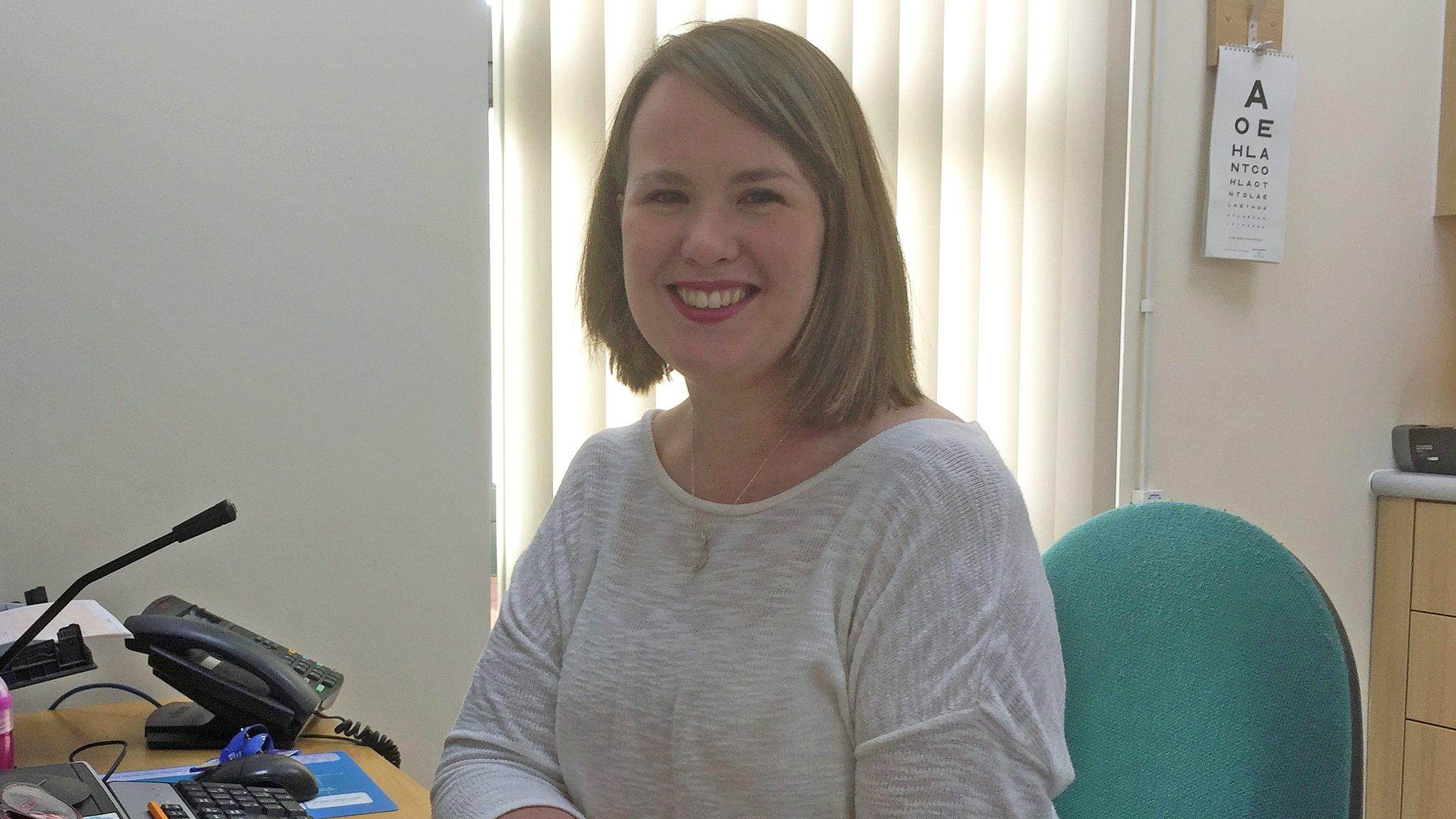Could homegrown doctors become the rural GPs of the future?
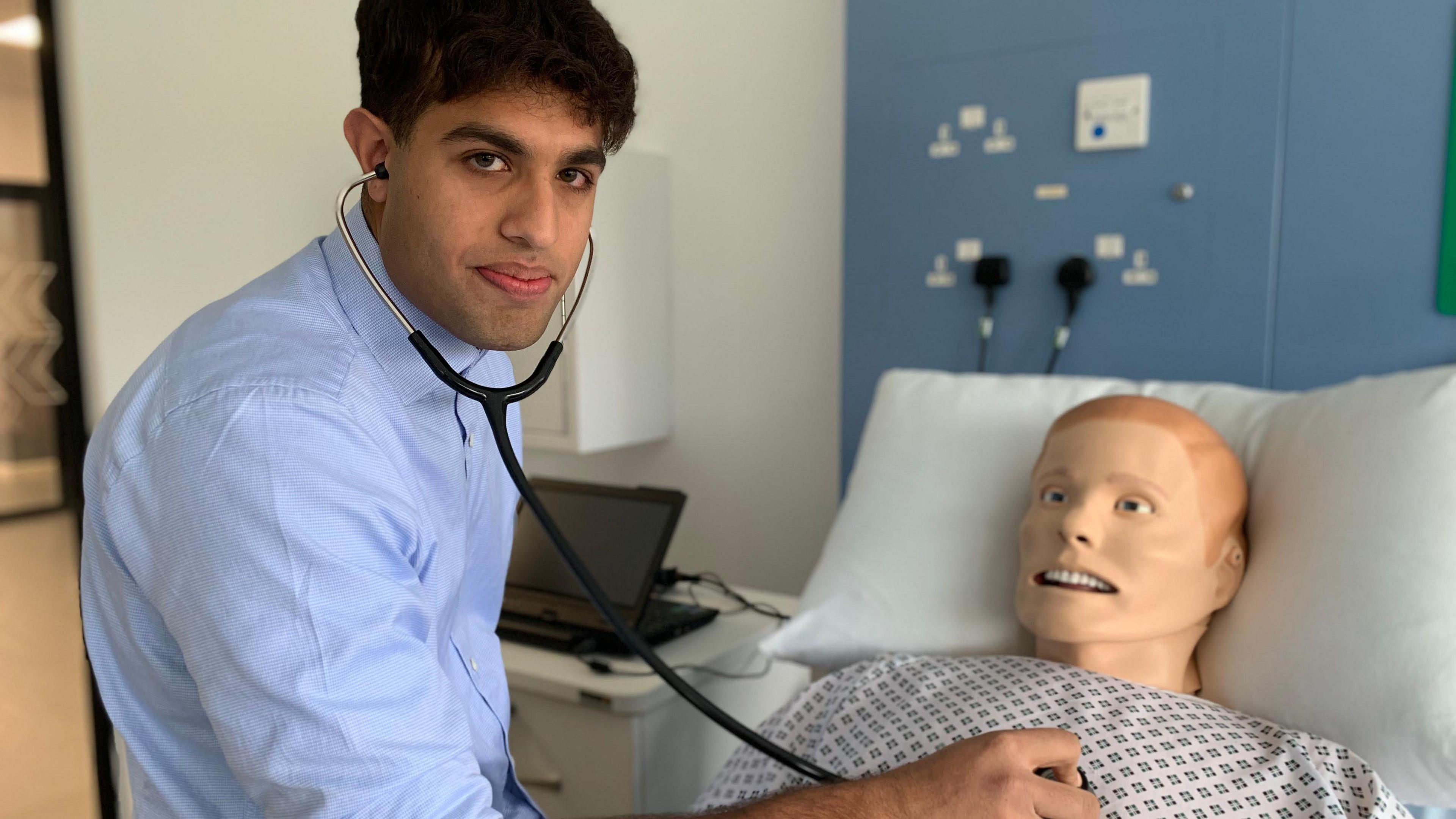
Musa Zahir is one of the Crichton Cohort of students in Dumfries
- Published
A new group of students in south-west Scotland could become a crop of homegrown doctors to help tackle long-term issues finding GPs in rural areas.
It is part of an agreement between the University of West Scotland (UWS), which has a base in Dumfries, and the universities of Dundee and St Andrews.
There are 17 people in total in the first Crichton Cohort - named after the campus where they will undertake their studies.
The institutions involved hope the move can help address "local problems with local solutions".
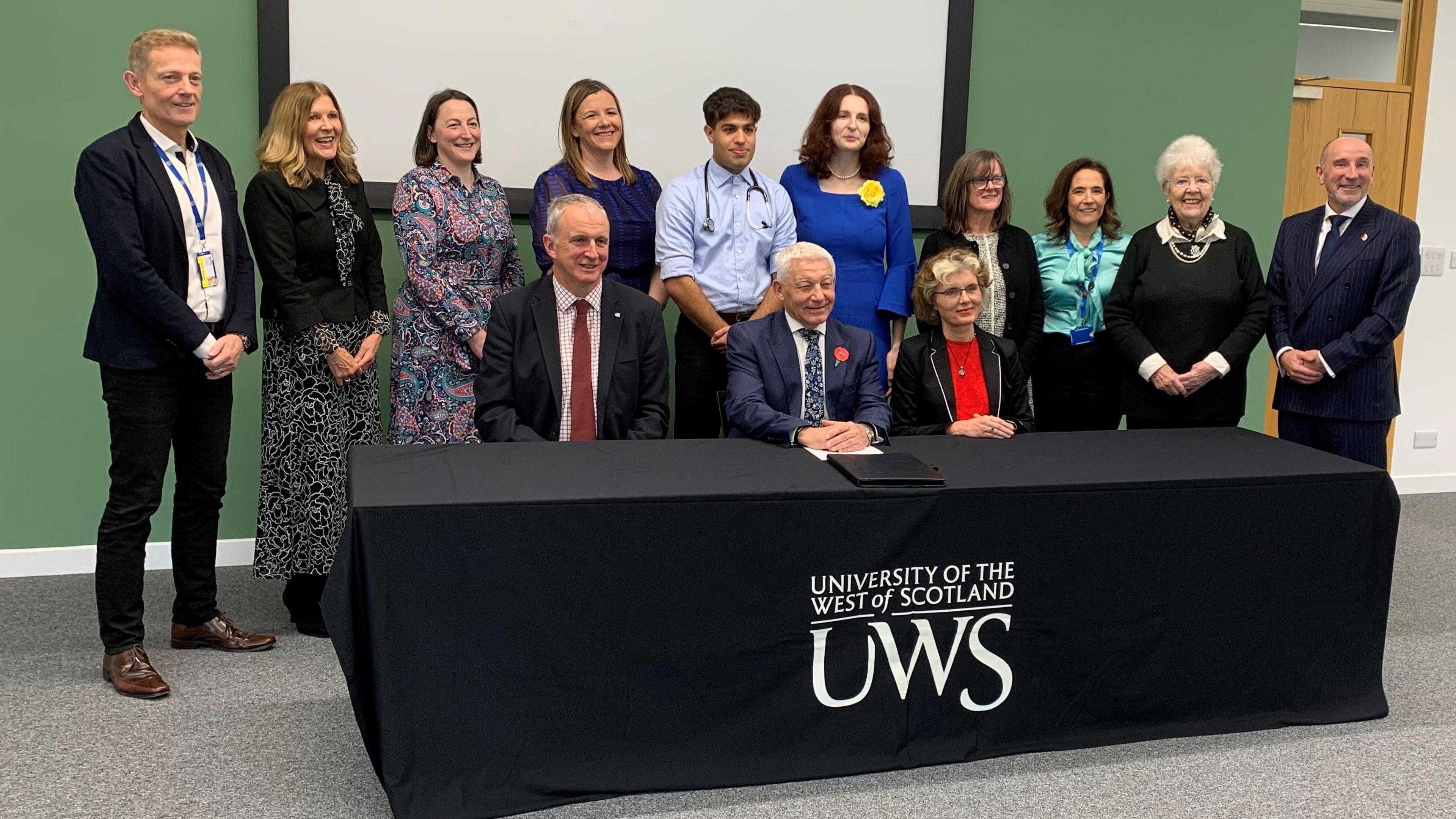
A new deal was signed between the University of the West of Scotland and the universities of Dundee and St Andrews
Scotland's health secretary recently announced an extra £531m would be allocated to recruit staff in GP surgeries over the next three years.
In Dumfries and Galloway, paramedics are helping free up GP time by taking on home visits normally carried out by family doctors as part of a pilot scheme.
In the most recent headcount survey, the region had one of the lowest numbers of doctors per 10,000 patients in the country and more than 40% of surgeries reported vacancies - the highest figure in mainland Scotland.
Against that backdrop, a lot of hope is being pinned on this latest group being able to play a part in turning that tide.
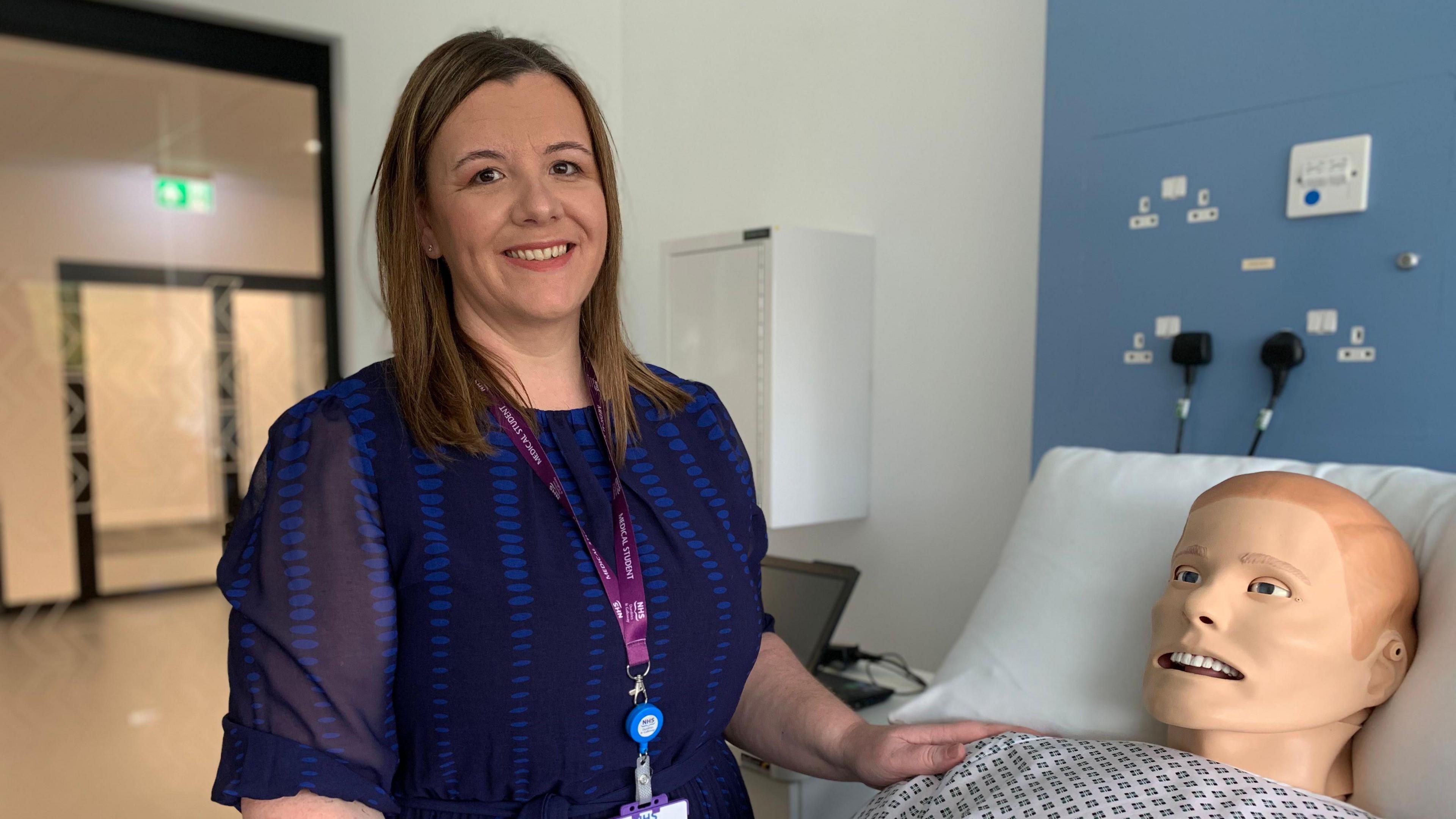
Heather Knaggs hopes to become a homegrown GP in Dumfries and Galloway
Heather Knaggs is from Ayr originally but has lived in Dumfries for many years and considers it an "enormous privilege" to have the chance to complete a medical degree.
She said the role of the GP was an important one in such a rural area.
"I think particularly that generalist care is so important because we're remote from tertiary services," she said.
"So the more exposure that we can have during our training to different scenarios and different specialisms is really important.
"But I think that rural community care is so special and so important, getting to know your patients and their stories is really powerful."
She still works as a pharmacist at weekends but said she was "really lucky" to be able to study close to home.
"I see myself as hopefully a GP working in this region - I feel like a homegrown GP so it would be really fantastic to get there," Ms Knaggs added.
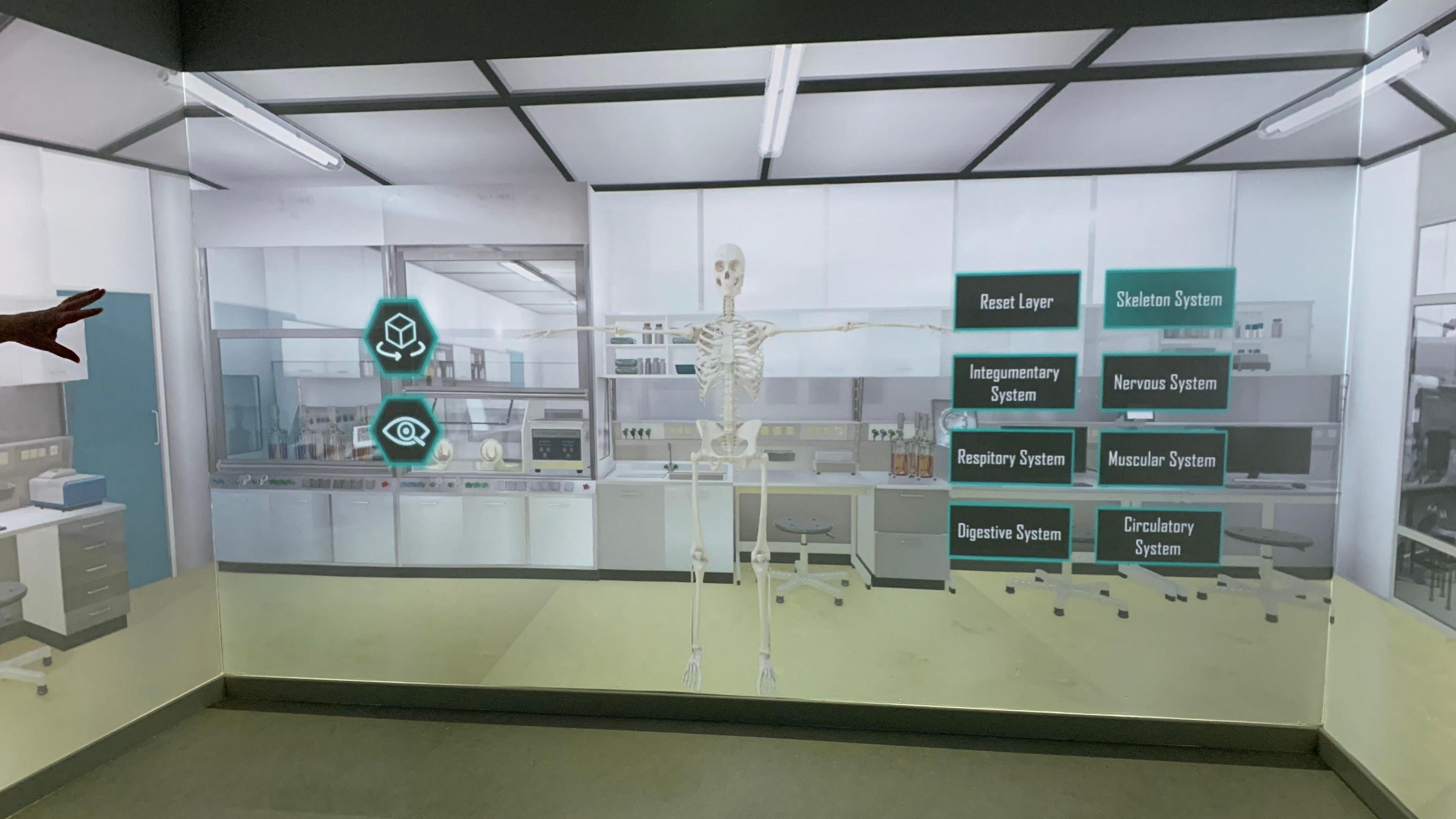
The UWS site in Dumfries offers access to state of the art training
Musa Zahir has come a little further to join the group.
He is from Woking and previously studied at Swansea University.
Mr Zahir was attracted by the opportunity to tackle the "health disparities and social inequalities" faced by rural areas.
He is unsure if he would want to be a GP at the end of his studies but is definitely keen to tackle the issues faced outside of the bigger cities.
"I'm not actually quite sure being in quite an early stage, but I was thinking more along the lines of emergency or acute medicine in a rural or semi-rural setting," he said.
"This is only my second week in Dumfries, but it seems like a lovely area.
"The teaching has been great so far, and the commitment from NHS Dumfries and Galloway has been very good.
"I'm quite privileged to be able to learn in this area."
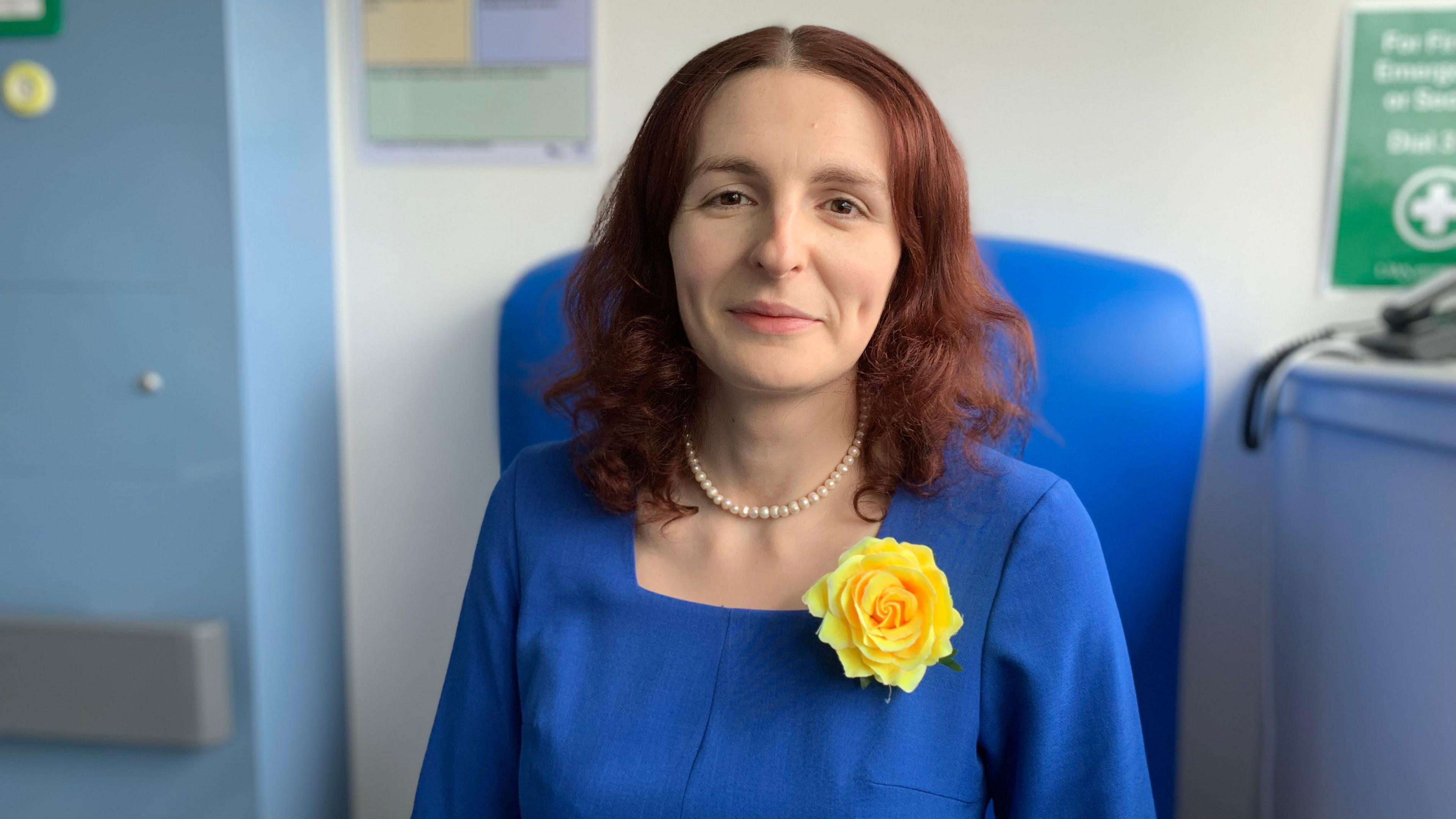
Flora Scarabello said she was looking forward to exploring Dumfries and Galloway
Flora Scarabello is originally from Falkirk but has been living in St Andrews.
She too has been impressed by her first contact with Dumfries.
"It's a lovely looking area and I'm looking forward to exploring it a bit more," she said.
"I've been very impressed so far by DGRI, the hospital here.
"I think they're very well organised, certainly all of our placements and so on.
"It's remarkable really how much thought and care has gone into preparing all of this for us."
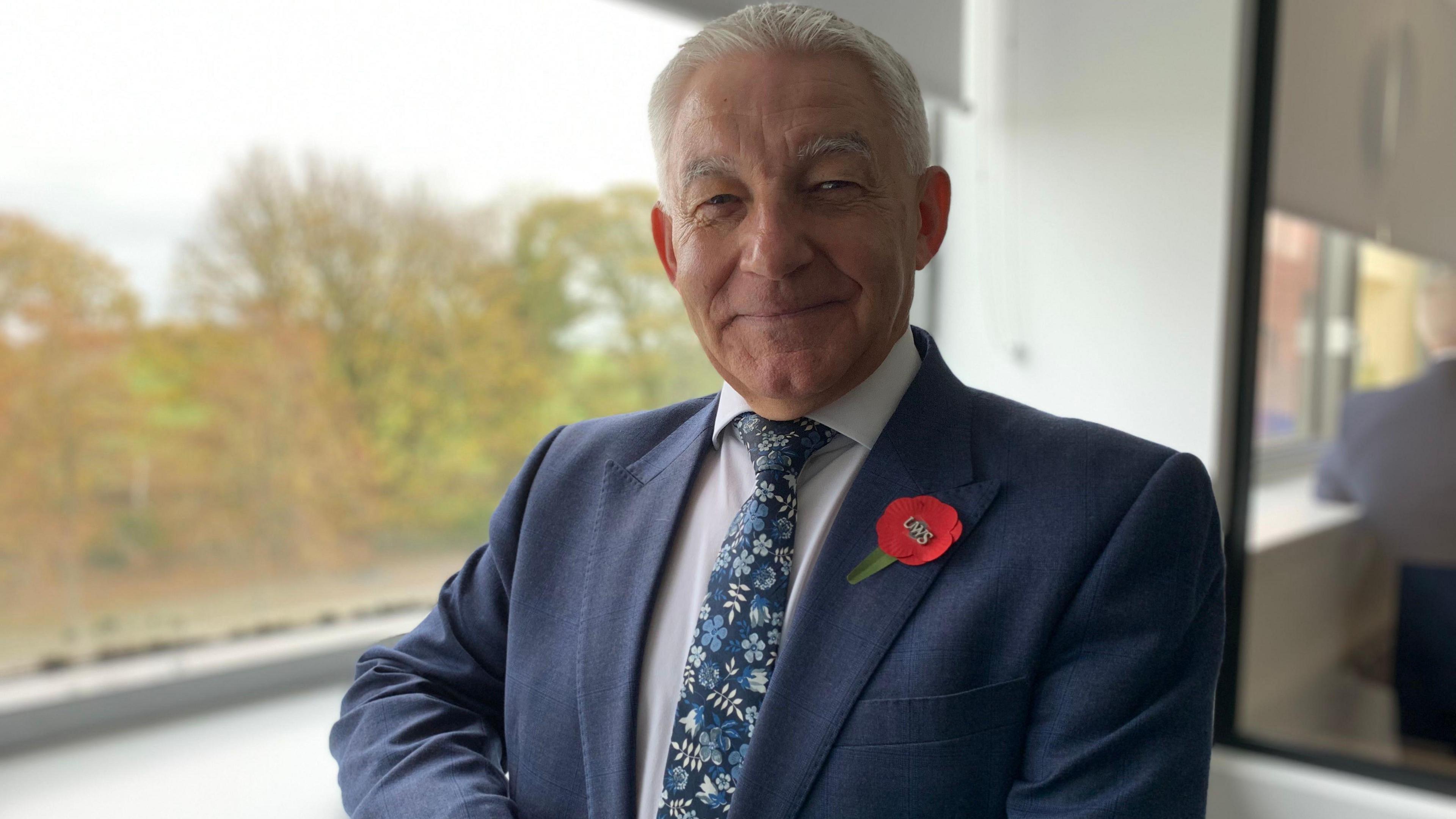
UWS principal James Miller said the students would become the doctors of Dumfries and Galloway in future
UWS principal and vice-chancellor James Miller said the signing of the partnership with ScotGEM - a four-year graduate-entry medical programme - was "yet another example of universities collaborating across different districts to benefit local communities".
He added: "In this case, it's about ensuring that we have a cohort of graduate doctors who are able to train locally and thus in the future stay locally in order to provide healthcare services to the local community.
"What we are creating here is a cohort of doctors.
"We're going to name them the Crichton Cohort so that there's a very clear identity, a very clear sense of belonging and a very clear sense that they will be the doctors in Dumfries and Galloway of the future."
Dr Sara Proudfoot of NHS Dumfries and Galloway said the health board was "delighted" to see the partnership develop.
"It's a positive step towards growing our own future workforce and ensuring that communities across Dumfries and Galloway continue to benefit from dedicated, locally-trained professionals," she said.
Get in touch
What stories would you like BBC News to cover from the south of Scotland?
- Published28 October
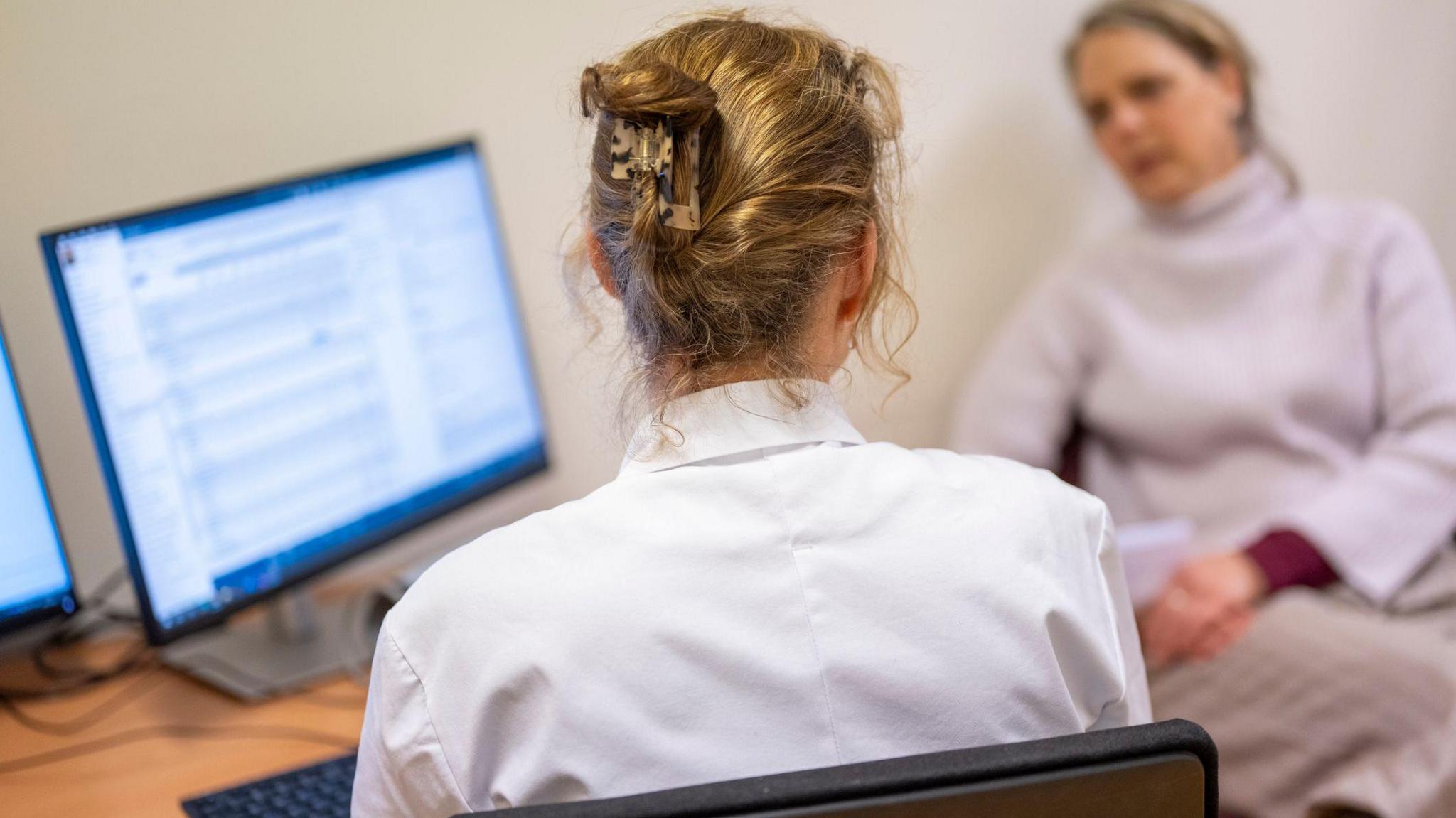
- Published18 February 2019
